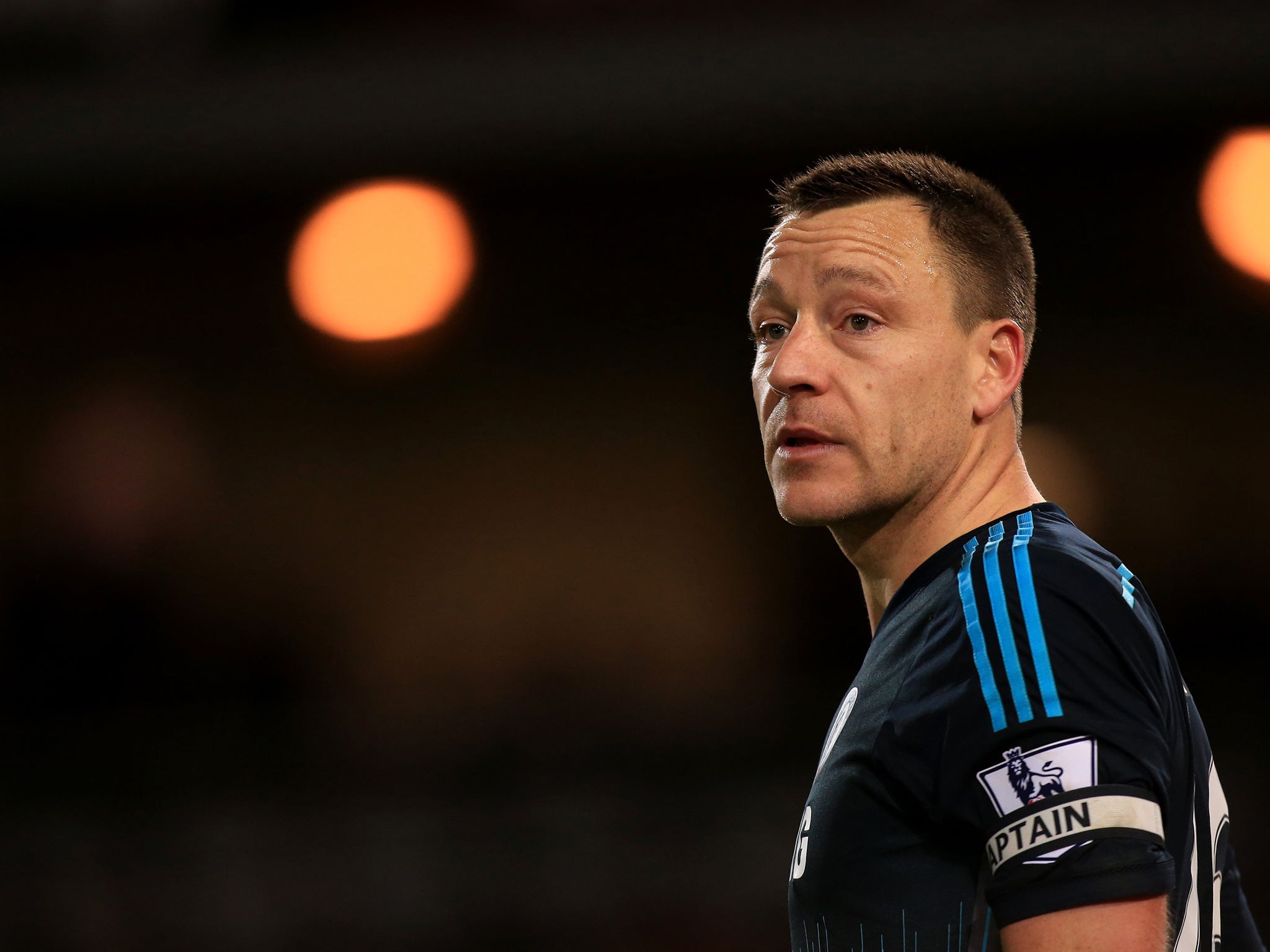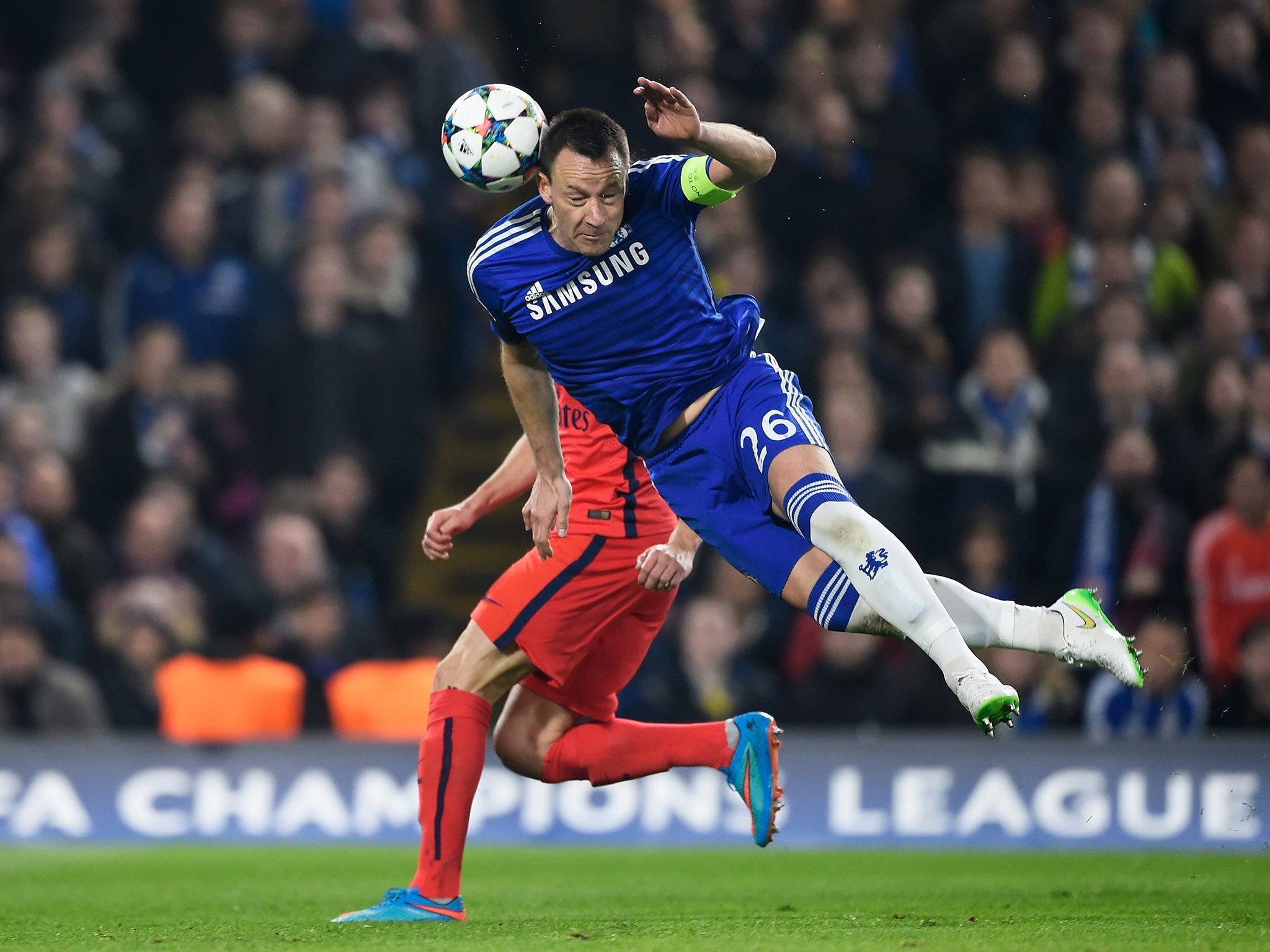Chelsea lack the killer instinct to live with Europe's finest
Cesc Fabregas has stopped providing the midfield penetration and John Terry and Jose Mourinho point to problems coping with pressure

Your support helps us to tell the story
From reproductive rights to climate change to Big Tech, The Independent is on the ground when the story is developing. Whether it's investigating the financials of Elon Musk's pro-Trump PAC or producing our latest documentary, 'The A Word', which shines a light on the American women fighting for reproductive rights, we know how important it is to parse out the facts from the messaging.
At such a critical moment in US history, we need reporters on the ground. Your donation allows us to keep sending journalists to speak to both sides of the story.
The Independent is trusted by Americans across the entire political spectrum. And unlike many other quality news outlets, we choose not to lock Americans out of our reporting and analysis with paywalls. We believe quality journalism should be available to everyone, paid for by those who can afford it.
Your support makes all the difference.The evening before the long dramatic night at Stamford Bridge, Cesc Fabregas was calmly dissecting Chelsea’s biggest problem during his press conference in the stadium’s Drake Suite.
“If I have to say what we’re missing a bit this season, it is that moment when, if we can kill, we have to kill,” explained the Spain midfielder, who is as good at talking about football as he is playing it. “There have been moments where we’ve not done that and allowed others to be dangerous. When we get one goal, we have to go for the second and third. That’s the only thing we can really improve. Hopefully we will have that killer instinct tomorrow.”
Almost exactly 24 hours later, Fabregas’s hopes were dashed. Chelsea, playing more than 90 minutes against the 10 men of Paris Saint-Germain, never went for the kill. They led 1-0 and 2-1, for five minutes and eight minutes, and twice let PSG back into the match.
They failed, despite their one-man advantage and the backing of their home crowd, to fully impose themselves on the game and on their opponents. Fabregas, at the heart of midfield, should have found the solution but he could not.
When Gary Cahill offered his analysis, pitchside long after the final whistle, the centre-half said that Chelsea had failed to grip the game tightly enough. “I don’t think we played to our potential, the way we can play, especially when they went down to 10 men and you expect to grab the game by the scruff of the neck,” Cahill said. “We didn’t quite do that and I’m not sure why.”
Jose Mourinho agreed. “The players felt too much the responsibility of the game, especially when the opponents went down to 10,” the Chelsea manager explained, clearly and honestly. “Instead of being in the game, enjoying the game, expressing themselves, clearly some of the players couldn’t cope with that pressure.”

Captain John Terry suggested that Chelsea had become more passive after Zlatan Ibrahimovic was sent off in the 31st minute because they thought progress to the quarter-finals was almost assured. “Maybe as a group we thought ‘we’re not going to lose this one’,” he said. “Instead of going for the jugular, you end up in there waiting and waiting.”
That is precisely what happened, although it was not a one-off. Too many times this season, when playing the best opposition, Chelsea have gone into the lead but then been caught between trying to close the game down and pushing for another goal.
That is what happened on Wednesday night but also in the first leg at the Parc des Princes. It occurred in both Premier League games against Manchester City, which both finished 1-1. Against Manchester United at home, the same thing happened, and in the Capital One Cup semi-final first leg at Anfield. It is clearly a recurring problem.
Of course, this is still a successful season for Chelsea. They have won the Capital One Cup and, unless they are hit by catastrophe, will win the Premier League as well. If the last campaign was a transitional season, Mourinho’s first since his return, then this time he has delivered in terms of trophies.
But there was a real hope at Stamford Bridge, when the Portuguese manager returned, that this team would be different from the last one, in terms of its commitment to expansive, proactive football.
“We won’t give up this style,” Mourinho said back at the start of this season. “We are showing a different style of play and we have the players. We are a pass-and-move team when we have the ball. We believe in that.” Fabregas, signed for £27m from Barcelona last summer, was meant to be the key man for this. Mourinho said on Monday that Chelsea had been “waiting for a player with his characteristics” and that he had “changed the profile of our team”.
Fabregas has been impressive in patches, but his contribution has dipped recently. That has often been the way – even a bizarre official statement from Barcelona last summer noted that “the magic tended to fade later on in each season” – but it is a real problem for Chelsea.
The answer may well be in the transfer market this summer. Chelsea could go for a deep-lying passing midfielder, someone to improve the tempo of the side and give them more control in possession. Sometimes pairing Fabregas and Nemanja Matic in central midfield is not enough.
They could look higher up the pitch, for some pace in behind defences, an alternative to Diego Costa or, depending on how well Juan Cuadrado does, an upgrade on Willian. But ultimate responsibility must lie with Mourinho. He has tried to play a new style of football in his second spell at Chelsea and, even with one trophy won and another on the way, he is not quite there yet.
The arrivals of Fabregas and Costa have brought this team up half a level, made them more dangerous, but they cannot yet fulfil the dream of playing assertive, expansive football of the type that had been hoped for. It is not how Mourinho, the undisputed king of reactive football, has won all his trophies in the past, with Porto, Chelsea, Internazionale and Real Madrid. This exceptionally-decorated leopard is still trying to change his spots.
Join our commenting forum
Join thought-provoking conversations, follow other Independent readers and see their replies
Comments